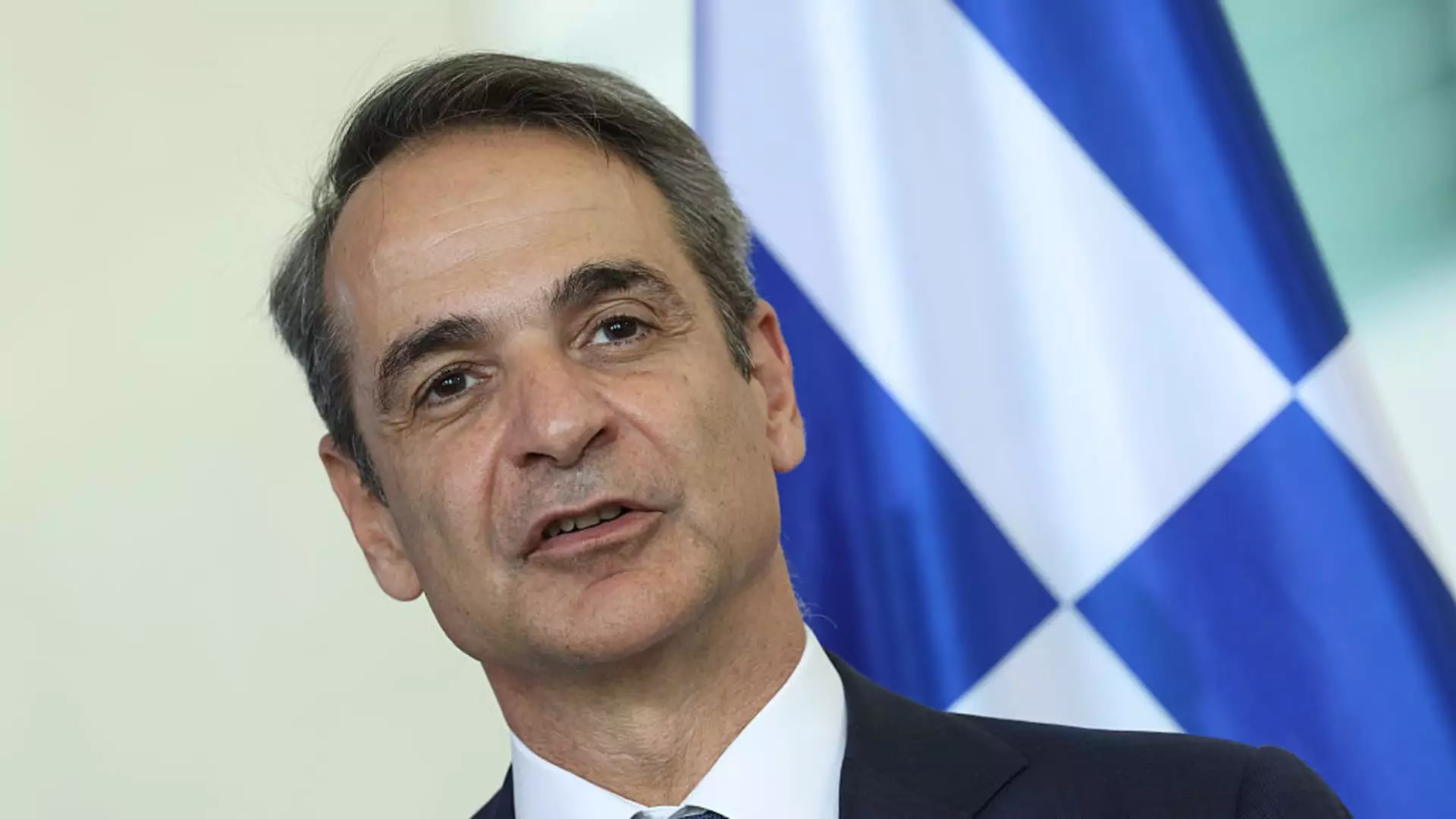In an era characterized by rising geopolitical tensions and the persistent shadow of international conflicts, the conversation surrounding NATO’s defense expenditures has intensified, drawing attention to the complex interplay of national priorities and inherent challenges. Recently, Greece’s Prime Minister Kyriakos Mitsotakis candidly articulated the difficulties NATO members face in addressing U.S. President Donald Trump’s expectations for defense spending, specifically the daunting 5% of gross domestic product (GDP) target. This has raised serious eyebrows and prompted critical reflection on the efficacy and realism of such ambitious proposals within the context of national and collective security.
Under normal circumstances, the defense budget would be a straightforward discussion rooted in numerical allocations and strategic priorities. However, the question of perceived fairness in contribution vis-à-vis security needs complicates the matter. Critically, it reflects how defense spending isn’t just about numbers on a ledger; it is also about the tangible security landscape facing nations day-to-day, intertwined with political tensions, such as those that Greece shares with Turkey. Therefore, one must ask whether a blanket increase in spending across NATO members is the prudent solution, or merely an exercise in political brinkmanship.
The Quandary of Cost-Effectiveness
Mitsotakis’s words resonate with a truth often overlooked in political debates: the economic feasibility of defending a nation cannot be ignored. Although he acknowledges that a commitment to increase defense budgets is necessary—a sentiment that aligns with Trump’s assertion that NATO allies must shoulder their fair share—he warns that 5% is a “very, very difficult” proposition. For nations with varying economic pressures, such a spike might lead to unsustainable budgets, diverting resources from critical areas like public health and education.
History has shown that countries often struggle to meet the already established NATO threshold of 2%. With a widespread failure to accomplish these goals, Mitsotakis’s skepticism about the achievability of a 5% target highlights broader implications for the alliance’s future. His perspective that 3.5% could represent an achievable ceiling if we align defense with necessary infrastructure expenses introduces a divergent avenue of thought. It demonstrates an inherent tension between being a responsible NATO member and the fiscal realities of governance.
Shifting the Narrative on Security Spending
The ongoing dialogue around defense financing and NATO requires an expansive and nuanced approach to security legislation, particularly within the European Union (EU). As Mitsotakis points out, Greece has been consistently exceeding the 2% guideline for years, primarily due to ongoing tensions over maritime disputes with Turkey. In that context, the reality is that nations exist within a dynamic web of regional politics, amplifying the disparity in defense spending capabilities and justifying higher military expenditures in some countries.
The recent push from the European Commission to ease fiscal constraints and encourage increased defense spending marks a significant shift in the dialogue surrounding European security. Herein lies an opportunity for the EU to facilitate a more pragmatic discussion on defense budgets, balancing national interests with wider security needs. However, the challenge remains: can European nations reconcile the ambitions of defense spending with the socio-economic demands of their populations? The prevailing attitude should shift from a focus on arbitrary percentage goals towards a more comprehensive security strategy that includes enhancing diplomatic relations and fostering stability.
Examining the Path Forward
As the NATO summit approaches, the need for innovative strategies to address defense challenges while respecting each member’s unique economic situation takes on greater urgency. If allies can foster a collaborative spirit rather than a competitive one, they may uncover more effective ways to secure shared interests. This would signal an evolution in NATO’s understanding of what security truly means—not merely a function of military expenditure but rather a holistic approach encompassing diplomacy, economic stability, and cooperative international relations.
Within the complex landscape of international politics, maintaining a balance between defense investment and the socio-economic health of nations is imperative. As discussions around increased NATO spending continue, the focus must shift to fostering not just a robust military alliance but also an economically sustainable one. Achieving true national security cannot rest solely on meeting arbitrary fiscal targets but rather requires an engaged commitment to redefining what it means to be a secure nation in an evolving global landscape.


Leave a Reply